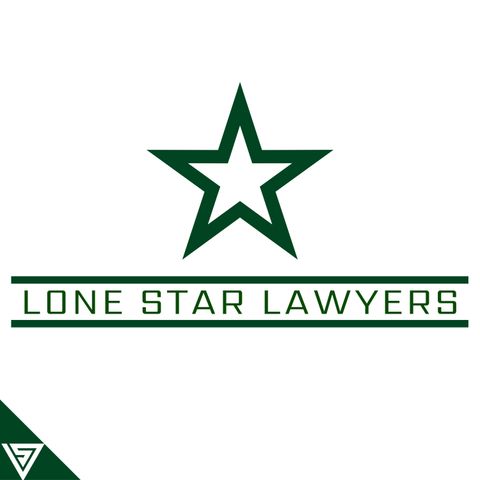Monday Mentors with Dallas Construction Lawyer Colbie Campbell

Download and listen anywhere
Download your favorite episodes and enjoy them, wherever you are! Sign up or log in now to access offline listening.
Description
Colbie Campbell, construction lawyer and partner with Slates Harwell in Dallas, joins us on today's show! Colbie talks about lumber prices, the importance of being adaptable, and practicing in a...
show moreHer firm/practice
12-13 lawyer boutique construction law firm
founders came over from (Foley) Gardere in 2013
She has been with the same people for most of her practice
Clients are usually general contractors/owners/developers
Practice encompasses transactional AND litigation
Her practice is more litigation, though it can ebb/flow with how the industry is going (what is begin transacted versus what is being litigated)
She also does some intellectual property (IP) work with her clients
Major issue with her clients right now is the price escalation of materials (lumber in particular), which can cause problems with large differences between bid prices and actual cost.
Supply chain is also an issue, as builds happen in a sequence and major delays can result when components don't arrive on schedule
When these things happen, look to the contract! What's in there?! This happened last year with tariffs.
There are also a lot of conversations that happen between the GCs/subs/etc. to try and work things out when things happen out of either parties' control.
Going forward contracts will have language addressing pandemics, COVID, etc. to try to account for it up front. Including additional costs such as PPE in order to allow people to work safely.
Everyone had to become an employment lawyer in the past year.
Advice for lawyers in practice
Adaptability
She came out in 2008-09 during the recession, and was forced to adapt to a difficult environment and make herself valuable so she could keep her job.
Learning to work with different partners and partner personalities and styles
she worked with a micromanager and a delegator
Daniel refers to the Jered/Wendy episode talking about understanding each partner's approach
Managing expectations
Better to communicate and let others know if there is an issue, problem, delay. Strong communication with the partner enables strong communication with the client, which helps keep reality and expectations in line.
Get into the driver's seat for the development of your professional career
If there is a partner that you work well with, go ask for more work from them!
If there is a case you want to work on, go ask for it!
If there is a skill you want to develop, go ask for the opportunity to learn it!
Partners may say the door is always open, but that still means you as the associate need to go to them!
Daniel recalls prior advice of associates needing to go out and get work; don't sit in your office and wait for the work to come to you.
It's both important to make sure you get all your hours AND to pick the type of work you want!
It can be scary to go to a niche firm
Daniel talked about fear of getting pigeon-holed.
In construction law, you are learning how to litigate, so those skills are transferable. You just get extra knowledge in terms of how the construction industry works. That may not help you in another type of firm, but it won't hurt you.
You can take advantage of the opportunity to gain more experience earlier in your career in firms like this.
Their firm has a huge range of cases monetary value
Failure to communicate is the number one issue that associates need to focus on, and a place where they can get into trouble
it is one of the core values at their firm
when a mistake is made, trying to fix it before communicating can be a problem
if you see a legal issue that the team might be missing, raise it!
Advice for lawyers who are lateraling
Demonstrate construction law experience OR interest if you are going to a construction law firm (but this would apply to most/any niche areas)
Be prepared to talk through your various job changes, particularly if there are a lot of them. Usually not a deal breaker, but likely will raise questions. The interviewing firm doesn't want to simply be the next firm on your resume that you worked with for 6-12 months.
Also be careful with your explanations that you don't throw former employers under the bus; that doesn't usually go over well.
Small firms will often have a tight-knit, family-style culture. So interviewers will be looking for good fits for their culture.
Each firm will likely have some skills/experiences/credentials that are necessary (i.e. price of entry), but if the fit isn't there, the resume won't be able overcome it.
Final thought
She is passionate about mentorship, especially with women. Seek both a mentor and a sponsor. And when you can become a mentor or sponsor, pay it forward!
Mentor - helps you learn how to practice law
Sponsor - advocate/promote you in your career
Rapid Fire Questions
Name one trait/characteristic you most want to see in an associate: integrity
What habit has been key to your success: organization and planning ahead
Favorite app/productivity tool: Coyote (timekeeping system)
The first bullet in the interests section of your resume: family
Favorite legal movie: Primal Fear; (Our Movie Verdicts deep dive episode)
Thanks again to Colbie Campbell for joining us on today's show!
Information
| Author | Daniel Hare |
| Organization | Daniel Hare |
| Website | - |
| Tags |
Copyright 2024 - Spreaker Inc. an iHeartMedia Company

Comments